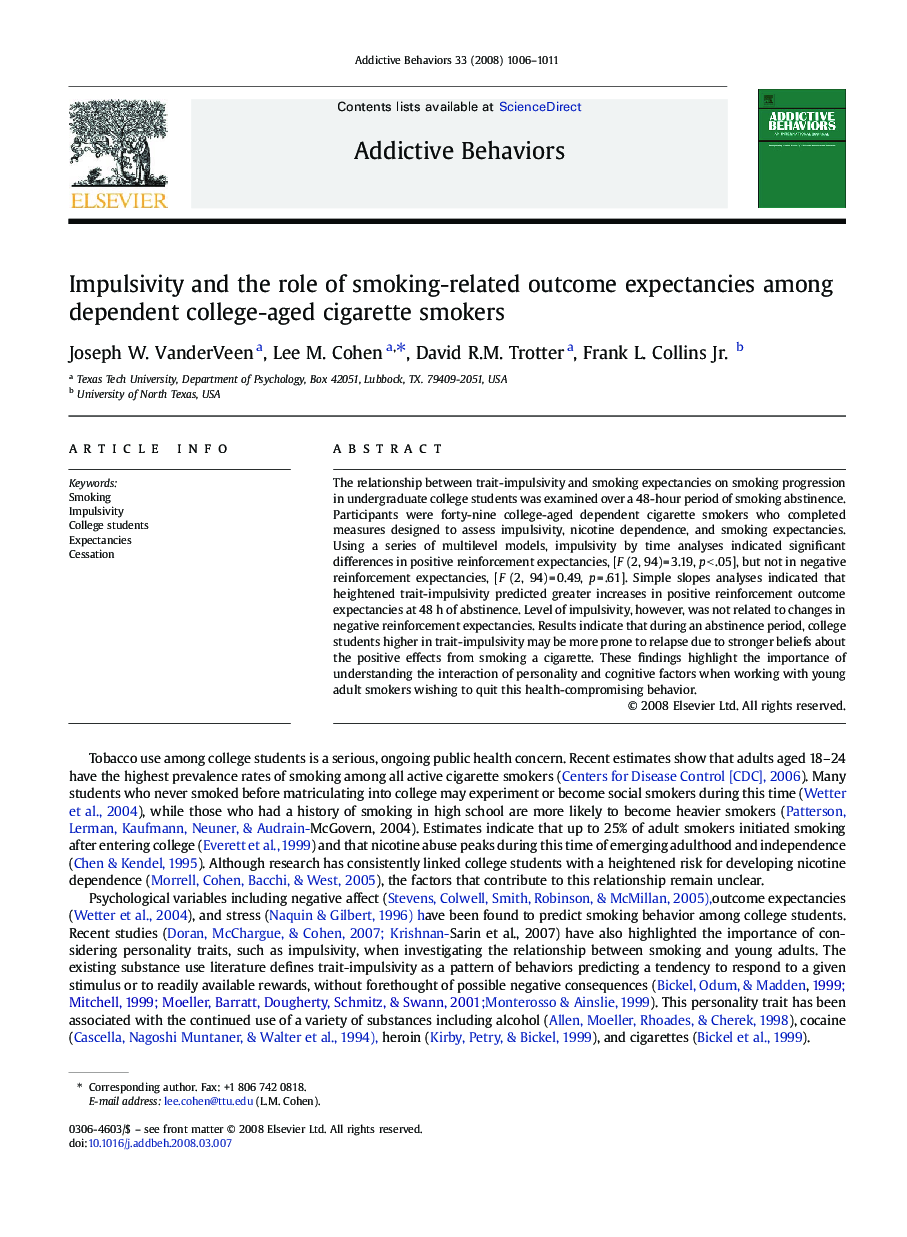| Article ID | Journal | Published Year | Pages | File Type |
|---|---|---|---|---|
| 899606 | Addictive Behaviors | 2008 | 6 Pages |
The relationship between trait-impulsivity and smoking expectancies on smoking progression in undergraduate college students was examined over a 48-hour period of smoking abstinence. Participants were forty-nine college-aged dependent cigarette smokers who completed measures designed to assess impulsivity, nicotine dependence, and smoking expectancies. Using a series of multilevel models, impulsivity by time analyses indicated significant differences in positive reinforcement expectancies, [F (2, 94) = 3.19, p < .05], but not in negative reinforcement expectancies, [F (2, 94) = 0.49, p = .61]. Simple slopes analyses indicated that heightened trait-impulsivity predicted greater increases in positive reinforcement outcome expectancies at 48 h of abstinence. Level of impulsivity, however, was not related to changes in negative reinforcement expectancies. Results indicate that during an abstinence period, college students higher in trait-impulsivity may be more prone to relapse due to stronger beliefs about the positive effects from smoking a cigarette. These findings highlight the importance of understanding the interaction of personality and cognitive factors when working with young adult smokers wishing to quit this health-compromising behavior.
